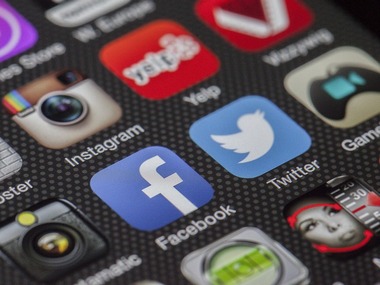Just a few years ago,
**Facebook** and
**Twitter** were hailed as tools for democracy activists, enabling movements like the Arab Spring to flourish. [caption id=“attachment_3975915” align=“alignleft” width=“380”] Representational image. Reuters[/caption] Today, the tables have turned as fears grow over how social media may have been manipulated to disrupt the US election, and over how authoritarian governments are using the networks to clamp down on dissent. The latest revelations from Facebook and Twitter, which acknowledged that Russian-backed entities used their network to spread disinformation and sow political discord, have heightened concerns about the impact of social networks on democracy. “Both services are ripe for abuse and manipulation by all sorts of problematic people, including hostile intelligence services,” says Andrew Weisburd, a non-resident fellow with the Alliance for Securing Democracy. The Alliance, a project created this year to counter what it claims are efforts by Russia undermine democracy and democratic institutions, includes US and European researchers worried about Moscow’s efforts. “What we have seen from the Kremlin in recent years is a direct by-product of what they have done to the Russian people in order to keep (President Vladimir) Putin and his cronies in power,” Weisburd said. Researcher Tim Chambers writes in a paper for the left-leaning New Policy Institute that the proliferation of political “bots” or automated accounts to make topics go “viral” such as those employed in 2016 are dangerous for elections and democracy “They fake petition signatures. They skew poll results and recommendation engines,” Chambers said. “Deceptive bots create the impression that there is grassroots, positive, sustained, human support for a certain candidate, cause, policy or idea. In doing so, they pose a real danger to the political and social fabric of our country.” Oxford University researchers said in a June report that social networks like Facebook and Twitter, which were intended to be a platform for free expression, “have also become tools for social control” in many countries. Governments employ large numbers of people “to generate content, direct opinion and engage with both foreign and domestic audiences,” said the report by the university’s Project on Computational Propaganda. The researchers, who studied social media in 28 countries, concluded that “every authoritarian regime has social media campaigns targeting their own populations.” In Turkey, for example, that has led to targeting of opposition leaders’ social media accounts so that others can launch a smear campaign. In other countries, governments create “bots” which amplify some voices to create an artificial sense of popularity, the researchers said. Some regimes employ “cyber troops” or private contractors for this purpose. Zeynep Tufekci, a North Carolina University sociologist who studies social networks and activist movements, said the platforms which helped enable the Arab Spring are now being used against dissenters. “This is not necessarily Orwell’s 1984,” she writes in her 2017 book, “Twitter and Tear Gas: How Social Media Changed Protest Forever.” “Rather than a complete totalitarianism based on fear and the blocking of information, the newer methods include demonizing online media and mobilizing armies of supporters or paid employees who muddy the online waters with misinformation, information overload, doubt, confusion, harassment, and distraction.” In the United States, the disclosures by Facebook and Twitter-fueled concerns that disinformation campaigns, likely from Russian entities, sought to manipulate public opinion and polarize the electorate ahead of the November election. Twitter shared data with congressional investigators about ads from Russia Today, a television group with links to the Moscow government and which has been accused by US intelligence services of meddling in the election. Twitter said RT spent $274,000 in 2016 on ads on its site that may have been used to try to influence the US election. Facebook also acknowledged foreign entities linked to Russia paid to promote political messages on the leading social network, potentially violating US election laws. The Oxford researchers said in a report Thursday that the campaign to spread “junk news” during the 2016 presidential election via Twitter appeared to target key states which could sway the Electoral College results. The researchers said that in the days leading up to the election, “Twitter users got more misinformation, polarizing and conspiratorial content than professionally produced news.”
Just a few years ago, Facebook and Twitter were hailed as tools for democracy activists, enabling movements like the Arab Spring to flourish.
Advertisement
End of Article


)



